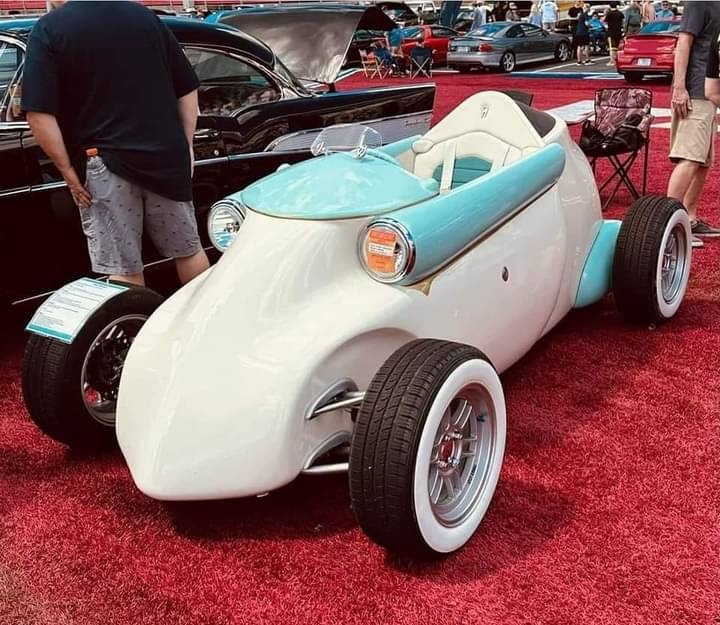12 Israeli sensor technologies that will rock your world
No more canaries in mines: Today’s sensors provide key information on everything from digital health to airport safety.
By Brian Blum
Sensors translate physical phenomena to a measurable signal. Photo courtesy of Consumer Physics/SCiO
Sensors are the hidden brain in everything from precision agriculture to connected cars, home appliances to security systems, smart cities to digital health.
“A sensor is anything that translates a physical phenomenon to a measurable signal or other information. For example, in the past they used canaries as sensors for poisonous gas in mines,” explains Amichai Yifrach, an Israeli expert in military and civilian sensor development and currently the CTO of ag-tech startup Flux.
“Using that definition, Israel is on the cutting edge of technology in all aspects of sensors,” he tells ISRAEL21c. “A lot of it is related to our capabilities in sensing things that others cannot, especially in relation to border security and airport control.”
Historically, Israel’s edge in sensor technology comes from defense needs and much of the sector is still focused on military applications, with companies such as Elbit Systems, Rafael Advanced Defense Systems and Seraphim Optronics in the lead.
YOU CAN GET ISRAEL21c NEWS DELIVERED STRAIGHT TO YOUR INBOX.
But as in many other fields, knowhow from the military gave a huge boost to Israel’s civilian sensor industry. “On the consumer side, we’re strong in image processing and algorithms. We have very good chemists, too,” says Yifrach.
“Sensors will be more and more important in water quality, air quality and even food quality, like for makers of wine, beer or balsamic vinegar,” Yifrach predicts. “Processes that follow chemical or physical properties need sensing to deduct valuable information for future quality or efficiency of the process. It all comes down to monitoring and controlling processes for quality.”
ISRAEL21c chose a dozen Israeli sensor pioneers to illustrate the country’s strength in this powerful sector.
Sensifree
Sensifree specializes in low-power, contact-free, electromagnetic sensors that accurately collect a range of continuous biometric data without the need to touch the human body. Its first product, a contactless heartrate sensor for wearable devices such as watches, fitness trackers and smart clothing, will be followed by a cuff-free blood-pressure sensor.
Based in California with R&D in Petah Tikva, Sensifree recently won $5 million in Series A financing, bringing its total funding since launching its revolutionary RF-based biometric sensor technology to $7 million.
MS Technologies
Based in Herzliya Pituah, MS Tech designs and manufactures nanotechnology detection and diagnostic sensors. Major airlines use its hand-held, non-radioactive explosives and narcotics detectors for carry-on baggage inspection, air-cargo screening and passenger security checks in several airports. Other industries that use MS Tech sensor technologies include food safety and product inspection, biomedical diagnostics, fire and smoke detection, water and air monitoring and aerospace.
https://www.youtube.com/watch?v=id4Q4SIYmRs
ContinUse Biometrics
ContinUse of Tel Aviv received a strategic investment from the multinational corporation Tyco to develop nanotechnology sensors that will be embedded into a range of construction and smart-home solutions.
ContinUse Biometrics’ biometric no-contact sensor — based on technology developed over a decade by Bar-Ilan and Valencia universities — can detect heartbeat, blood pressure, breathing pace, glucose level, oxygen saturation and alcohol levels in the blood of a fully dressed person without touching the person. This data can be used to authenticate identity and manage access for security and smart-home applications, workplaces and sensitive facilities.
Vayyar
Vayyar sensors could make every cellphone or tablet a full 3D imaging system. Based in Yehud, Vayyar uses low-power radio transmissions to scan objects in a fraction of a second and create an enhanced imaging experience. One of the applications is better detection of irregularities in an object being examined, for example to detect tumors on mammograms or bacteria in milk bottling. The company recently won the Fast Pitch Contest sponsored by the Global Electronics Industry Association in Tel Aviv.
https://www.youtube.com/watch?v=TLjUK-teB8o
Elfi-Tech
Elfi-Tech of Rehovot has introduced several sensor products for noninvasive measurements of physiological and blood parameters for use in fitness, wellness and first-line diagnostics apps. Its proprietary mDLS sensor module was integrated into Samsung’s Simband wearable open platform, and now the company is collaborating with pharma and medical-device industry to integrate mDLS into patient-monitoring devices. Elfi-Tech also is working with companies in the big-data analytics space on its new Data Logger device, which collects and analyzes mass amounts of cardiovascular health data from a single wearable.
Accurate Sensors Technologies
Started in 1994 as 3T, Accurate Sensors Technologies manufactures no-contact temperature-measurement solutions for extreme conditions, such as digital infrared thermometers. Headquartered in Misgav, the company also makes plug-and-play pyrometers — instruments for measuring high temperatures in furnaces and kilns – for the aluminum industry.
Neteera Technologies
Founded in January 2015 in partnership with Yissum Research Development Company of the Hebrew University of Jerusalem, Neteera is developing novel Terahertz imaging and sensing devices, of unprecedented resolution, size, cost-effectiveness and reliability.
Neteera’s technology is revolutionary as it allows for multiple applications such as all-weather and night imaging for automotive and surveillance applications; weapons, explosives and contraband detection; medical imaging; manufacturing and quality control; monitoring of human physiological and biometric indicators and more.
Occipital
Occipital’s Structure Sensor is touted as the world’s first 3D sensor for mobile devices, adding 3D scanning, large-scale reconstruction and augmented-reality (AR) capabilities to new or existing iOS devices.
Named a Popular Science “Best of What’s New” gadget for 2013, and recognized with a 2014 CES Innovations award, the Structure Sensor hardware platform gives developers the ability to easily create applications such as 3D mapping of indoor spaces, AR games, body scanning for fitness tracking and virtual clothes fitting, and 3D object scanning for easy 3D content creation.
Occipital’s Structure Sensor can be used for object and body scans. Photo: courtesy
Occipital’s Structure Sensor can be used for object and body scans. Photo: courtesy
Consumer Physics
Consumer Physics’ soon-to-be-released SCiO device uses optical sensors to read the chemical makeup of just about anything without touching it: for example, the fat in a piece of cake, the ripeness of fruit, the ingredients in medicines, the properties of cosmetics and precious stones.
Nexense
Ramat Gan-based Nexense makes a sensor system worn as a chest strap or wristwatch to monitor various physical parameters during sleep for the treatment of snoring and sleep apnea. The product, already approved in Europe and Israel, counts GE Healthcare among its investors and is expected to go public in 2017.
EarlySense
EarlySense uses an under-bed sensor system for continuous monitoring of patient vital signs and movement in hospitals and other healthcare settings. Without ever touching the patient, EarlySense helps the clinical team manage early detection of patient deterioration, fall prevention and prevention of bedsores.
EarlySense goes under the patient’s bed. Photo: courtesy
EarlySense goes under the patient’s bed. Photo: courtesy
Saturas
Saturas, founded in 2013 in the Trendlines incubator program, has developed a system of miniature implanted sensors and wireless transponders for determining the water status of fruit trees easily and inexpensively. According to CEO Anat Halgoa Solomon, the system (to be available in 2018) could save farmers up to 20 percent on water usage.
Among many other sensor-based ag-tech companies in Israel are Phytech, AutoAgronom, CropX, GreenIQ and Flux.
ISRAEL'S CIVILIAN BIOSENSOR INDUSTRY
"Sensors are the hidden brain in everything from precision agriculture to connected cars, home appliances to security systems, smart cities to digital health."
“Sensors will be more and more important in water quality, air quality and even food quality, like for makers of wine, beer or balsamic vinegar"
https://www.israel21c.org/12-israeli-sensor-technologies-that-will-rock-your-world/ https://donshafi911.blogspot.com/2024/02/12-israeli-sensor-technologies-that.html 12 Israeli sensor technologies that will rock your world
No more canaries in mines: Today’s sensors provide key information on everything from digital health to airport safety.
By Brian Blum
Sensors translate physical phenomena to a measurable signal. Photo courtesy of Consumer Physics/SCiO
Sensors are the hidden brain in everything from precision agriculture to connected cars, home appliances to security systems, smart cities to digital health.
“A sensor is anything that translates a physical phenomenon to a measurable signal or other information. For example, in the past they used canaries as sensors for poisonous gas in mines,” explains Amichai Yifrach, an Israeli expert in military and civilian sensor development and currently the CTO of ag-tech startup Flux.
“Using that definition, Israel is on the cutting edge of technology in all aspects of sensors,” he tells ISRAEL21c. “A lot of it is related to our capabilities in sensing things that others cannot, especially in relation to border security and airport control.”
Historically, Israel’s edge in sensor technology comes from defense needs and much of the sector is still focused on military applications, with companies such as Elbit Systems, Rafael Advanced Defense Systems and Seraphim Optronics in the lead.
YOU CAN GET ISRAEL21c NEWS DELIVERED STRAIGHT TO YOUR INBOX.
But as in many other fields, knowhow from the military gave a huge boost to Israel’s civilian sensor industry. “On the consumer side, we’re strong in image processing and algorithms. We have very good chemists, too,” says Yifrach.
“Sensors will be more and more important in water quality, air quality and even food quality, like for makers of wine, beer or balsamic vinegar,” Yifrach predicts. “Processes that follow chemical or physical properties need sensing to deduct valuable information for future quality or efficiency of the process. It all comes down to monitoring and controlling processes for quality.”
ISRAEL21c chose a dozen Israeli sensor pioneers to illustrate the country’s strength in this powerful sector.
Sensifree
Sensifree specializes in low-power, contact-free, electromagnetic sensors that accurately collect a range of continuous biometric data without the need to touch the human body. Its first product, a contactless heartrate sensor for wearable devices such as watches, fitness trackers and smart clothing, will be followed by a cuff-free blood-pressure sensor.
Based in California with R&D in Petah Tikva, Sensifree recently won $5 million in Series A financing, bringing its total funding since launching its revolutionary RF-based biometric sensor technology to $7 million.
MS Technologies
Based in Herzliya Pituah, MS Tech designs and manufactures nanotechnology detection and diagnostic sensors. Major airlines use its hand-held, non-radioactive explosives and narcotics detectors for carry-on baggage inspection, air-cargo screening and passenger security checks in several airports. Other industries that use MS Tech sensor technologies include food safety and product inspection, biomedical diagnostics, fire and smoke detection, water and air monitoring and aerospace.
https://www.youtube.com/watch?v=id4Q4SIYmRs
ContinUse Biometrics
ContinUse of Tel Aviv received a strategic investment from the multinational corporation Tyco to develop nanotechnology sensors that will be embedded into a range of construction and smart-home solutions.
ContinUse Biometrics’ biometric no-contact sensor — based on technology developed over a decade by Bar-Ilan and Valencia universities — can detect heartbeat, blood pressure, breathing pace, glucose level, oxygen saturation and alcohol levels in the blood of a fully dressed person without touching the person. This data can be used to authenticate identity and manage access for security and smart-home applications, workplaces and sensitive facilities.
Vayyar
Vayyar sensors could make every cellphone or tablet a full 3D imaging system. Based in Yehud, Vayyar uses low-power radio transmissions to scan objects in a fraction of a second and create an enhanced imaging experience. One of the applications is better detection of irregularities in an object being examined, for example to detect tumors on mammograms or bacteria in milk bottling. The company recently won the Fast Pitch Contest sponsored by the Global Electronics Industry Association in Tel Aviv.
https://www.youtube.com/watch?v=TLjUK-teB8o
Elfi-Tech
Elfi-Tech of Rehovot has introduced several sensor products for noninvasive measurements of physiological and blood parameters for use in fitness, wellness and first-line diagnostics apps. Its proprietary mDLS sensor module was integrated into Samsung’s Simband wearable open platform, and now the company is collaborating with pharma and medical-device industry to integrate mDLS into patient-monitoring devices. Elfi-Tech also is working with companies in the big-data analytics space on its new Data Logger device, which collects and analyzes mass amounts of cardiovascular health data from a single wearable.
Accurate Sensors Technologies
Started in 1994 as 3T, Accurate Sensors Technologies manufactures no-contact temperature-measurement solutions for extreme conditions, such as digital infrared thermometers. Headquartered in Misgav, the company also makes plug-and-play pyrometers — instruments for measuring high temperatures in furnaces and kilns – for the aluminum industry.
Neteera Technologies
Founded in January 2015 in partnership with Yissum Research Development Company of the Hebrew University of Jerusalem, Neteera is developing novel Terahertz imaging and sensing devices, of unprecedented resolution, size, cost-effectiveness and reliability.
Neteera’s technology is revolutionary as it allows for multiple applications such as all-weather and night imaging for automotive and surveillance applications; weapons, explosives and contraband detection; medical imaging; manufacturing and quality control; monitoring of human physiological and biometric indicators and more.
Occipital
Occipital’s Structure Sensor is touted as the world’s first 3D sensor for mobile devices, adding 3D scanning, large-scale reconstruction and augmented-reality (AR) capabilities to new or existing iOS devices.
Named a Popular Science “Best of What’s New” gadget for 2013, and recognized with a 2014 CES Innovations award, the Structure Sensor hardware platform gives developers the ability to easily create applications such as 3D mapping of indoor spaces, AR games, body scanning for fitness tracking and virtual clothes fitting, and 3D object scanning for easy 3D content creation.
Occipital’s Structure Sensor can be used for object and body scans. Photo: courtesy
Occipital’s Structure Sensor can be used for object and body scans. Photo: courtesy
Consumer Physics
Consumer Physics’ soon-to-be-released SCiO device uses optical sensors to read the chemical makeup of just about anything without touching it: for example, the fat in a piece of cake, the ripeness of fruit, the ingredients in medicines, the properties of cosmetics and precious stones.
Nexense
Ramat Gan-based Nexense makes a sensor system worn as a chest strap or wristwatch to monitor various physical parameters during sleep for the treatment of snoring and sleep apnea. The product, already approved in Europe and Israel, counts GE Healthcare among its investors and is expected to go public in 2017.
EarlySense
EarlySense uses an under-bed sensor system for continuous monitoring of patient vital signs and movement in hospitals and other healthcare settings. Without ever touching the patient, EarlySense helps the clinical team manage early detection of patient deterioration, fall prevention and prevention of bedsores.
EarlySense goes under the patient’s bed. Photo: courtesy
EarlySense goes under the patient’s bed. Photo: courtesy
Saturas
Saturas, founded in 2013 in the Trendlines incubator program, has developed a system of miniature implanted sensors and wireless transponders for determining the water status of fruit trees easily and inexpensively. According to CEO Anat Halgoa Solomon, the system (to be available in 2018) could save farmers up to 20 percent on water usage.
Among many other sensor-based ag-tech companies in Israel are Phytech, AutoAgronom, CropX, GreenIQ and Flux.
ISRAEL'S CIVILIAN BIOSENSOR INDUSTRY
"Sensors are the hidden brain in everything from precision agriculture to connected cars, home appliances to security systems, smart cities to digital health."
“Sensors will be more and more important in water quality, air quality and even food quality, like for makers of wine, beer or balsamic vinegar"
https://www.israel21c.org/12-israeli-sensor-technologies-that-will-rock-your-world/
https://donshafi911.blogspot.com/2024/02/12-israeli-sensor-technologies-that.html












